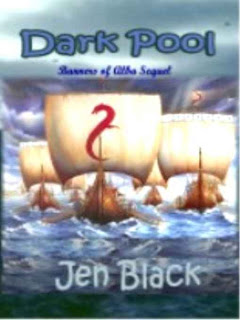 Here's an interesting article: http://futurebook.net/content/do-editors-not-say-no-because-they-can-no-longer-say-yes
Here's an interesting article: http://futurebook.net/content/do-editors-not-say-no-because-they-can-no-longer-say-yesIt's not too long, so I'll leave it to you to click through and read the whole thing. I hope agents and editors take it to heart!
As for me, I have gone through the first three chapters of Matho 1 - now entitled The King's Business after several titles changes - checking for conflict, suspense, drama and emotional intensity. Not to mention repetition, poor grammar, awkward sentences and the occasional missed word. Yes, in spite of all the work and time spent on these three chapters over the last three years, I spotted two instances where a small, two-letter words had been omitted. (Of course, I blame the computer for that!)
So later today I shall be printing the pages out, and if I think they're up to scratch I'll think about sending them to an agent.
I'm getting more and more reluctant to send things out. There's something truly disheartening about sending these pages out, waiting six or eight weeks and receiving no reply. I mean, how much effort does it take to zip off an e-mail and say "thanks but no, it isn't what I'm looking for?" All of a minute, I'd say. That minute would be a minute well spent, because I'd certainly regard that agency as more efficient, more courteous and one I'd like to work with in the future. The agent who scrawls a hasty handwritten "it doesn't make my heart sing" across the bottom of the covering letter and returns it to me makes me give a wry grin. It's a refusal, sure, but it's personal, and she bothered to respond. Good for her.
I tend to forget about books I wrote some time ago, but they're still out there, waiting for their readers. Dark Pool is available on Kindle now, click, which it wasn't when it first came out. It's an exciting story about a young girl kidnapped by Vikings and taken to Dublin where she faces a forced marriage or the slave market. One reviewer said it was too harsh to be a romance, but as a portrayal of Dark Age life she thought it scored 100%. I know I enjoyed writing it!















